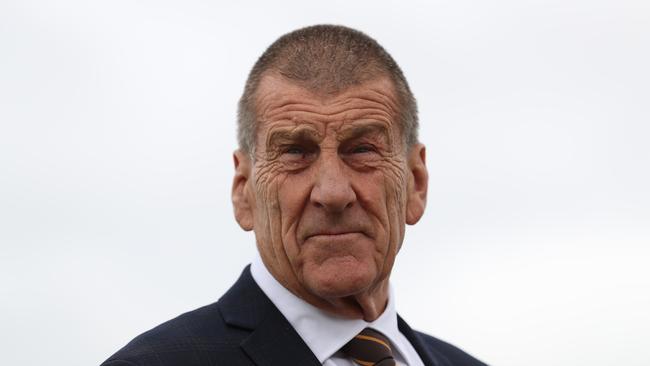Big hitters join archives funding campaign
Three of Australia’s most widely respected political figures have lent their support to a campaign to secure adequate funding for the neglected National Archives of Australia.

Three of Australia’s most widely respected political figures have lent their support to a campaign, first revealed by The Australian on Friday, to secure adequate funding for the neglected National Archives of Australia.
Former Victorian premier Jeff Kennett, former Howard government minister David Kemp and former Labor senator John Faulkner said they had noted the 150 signatories on the open letter to Scott Morrison, which included two Nobel laureates, J. M. Coetzee and Peter Doherty, three Australians of the Year, and authors such as Helen Garner, Tim Winton, Tom Keneally and David Malouf.
“I very much support the efforts of many to secure archival records for future generations and the historical record,” said Mr Kennett, who spent 23 years in state parliament and seven as premier.
“These archives are the heart and soul of the nation’s passage through time. It is easy for governments, regardless of their political persuasion, when dealing with a crisis or, now, a pandemic, to give other matters a higher priority.
“But unless we continually maintain our records, the result could be twofold. One, the cost of catching up will be ever increasing; and worse, the material could be lost forever. The parliament of the nation has an obligation to properly fund our National Archives.”
“You have achieved an impressive list of signatories which should carry weight,” said Mr Kemp, who was the member for Goldstein for 14 years and a cabinet minister for seven.
“I fully support the view expressed that the National Archives is a pillar of our democratic life, as well as the need for both interim funding for its digital work and for proper and appropriate long-term funding.”
Mr Kemp, now chairman of the Australian Heritage Council, has produced four volumes of a history of Australia. The first volume was short-listed for the 2019 Prime Minister’s Literary Award for Australian History.
As Kevin Rudd’s special minister of state, John Faulkner took a particular interest in NAA, and remained on the advisory council until he retired as “Father of the Senate” in February 2015. He is the co-author, with Stuart Macintyre of the University of Melbourne, of a history of the federal Labor caucus, called True Believers.
“The National Archives is a vital but poorly understood Australian institution,” Mr Faulkner told The Weekend Australian. “It is a home of history and a mechanism of government accountability.
“It is our memory and our conscience, (and) it is the state’s responsibility to provide the archives with adequate funding. What is lost can never be recovered.”
It is 18 months since the government received the Report into the Functional and Efficiency of NAA by former finance secretary David Tune, which revealed an organisation in danger of failing to meet its statutory responsibilities and in urgent need of funding to prevent the loss of almost its entire holdings of magnetic tape.
Impetus was given to the campaign by recent remarks in Senate estimates by Assistant Attorney-General Amanda Stoker, who dismissed the disintegration of records as just “part of the ageing process” and “business as usual”.
On Friday, she said: “The government is committed to ensuring the National Archives is positioned to undertake its important role in protecting, preserving and using commonwealth information.
“That is why the government commissioned the (Tune review) to help identify the resources required to enable the National Archives to best perform its role.”
She did not explain why this had taken so long, nor why no provision for extra funding had been made in the recent federal budget.



To join the conversation, please log in. Don't have an account? Register
Join the conversation, you are commenting as Logout